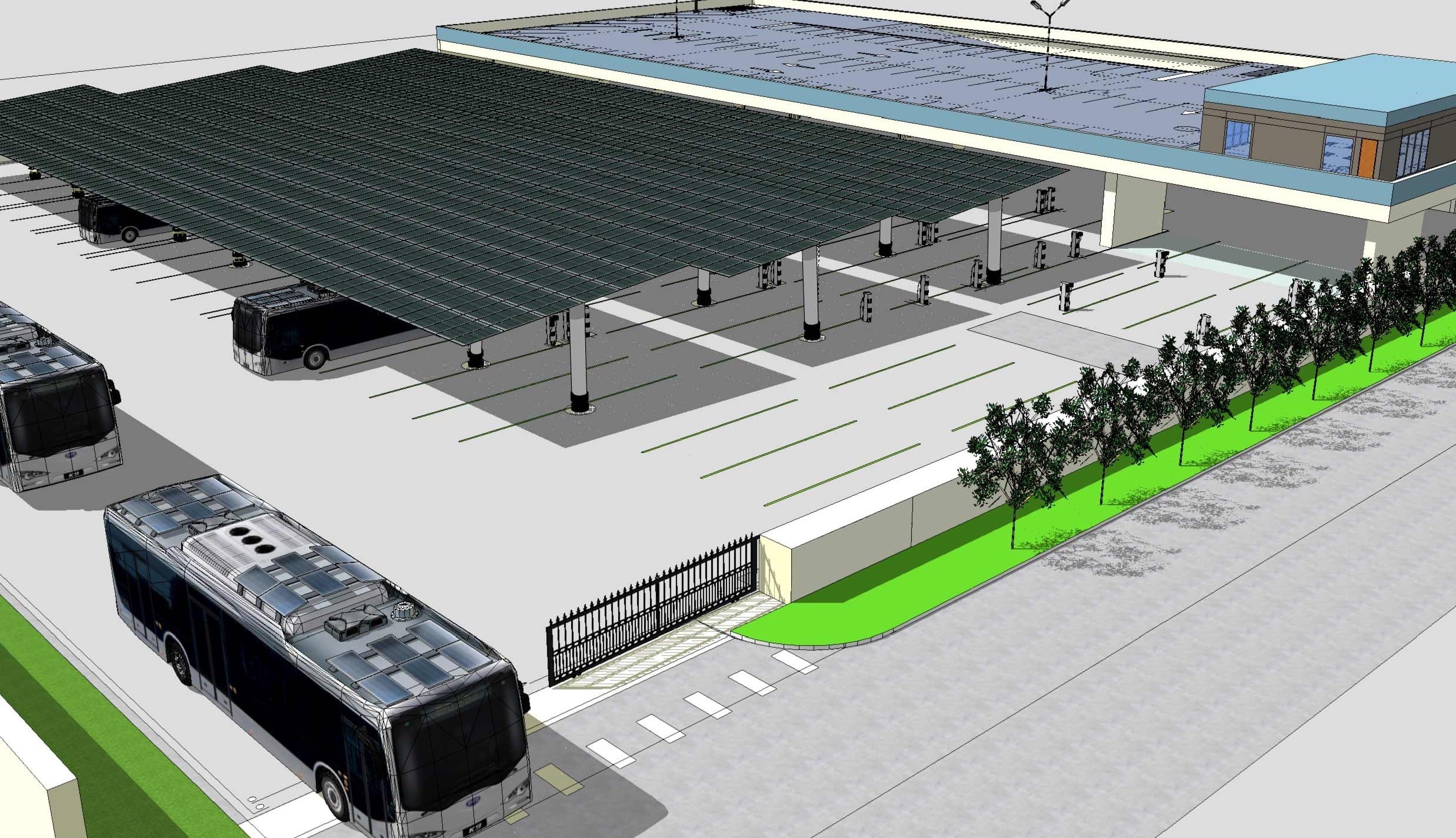In partnership with: Amply

Bus and shuttle operators are beginning to electrify their fleets in response to a growing number of mandates throughout the country. With public transit agencies edging towards zero-emission buses to satisfy these mandates, which call for improved air quality and health benefits, some leading transit agencies are developing larger, more complex battery electric bus projects that require innovative partnerships to execute.
Electrification Mandates on the Rise
Legislative mandates to meet zero-emission targets are increasing, with states such as California adopting regulations such as the Innovative Clean Transit (ICT) rule in 2018, which requires transit agencies to begin transitioning to a zero-emission fleet as early as 2023, and by 2029, purchasing only zero-emission buses. This was followed by California Governor Gavin Newsom signing an executive order this past September that will ban the sale of new internal combustion engine vehicles starting in 2035 and in 2045 for commercial applications.
Legislative mandates to meet zero-emission targets are increasing, public transit agencies electrify fleets in response.
But the Golden State is not alone, with 14 other states and Washington, D.C. signing a Memorandum of Understanding (MOU) agreeing to switch to all medium- and heavy-duty trucks, vans, and buses to run on electricity by 2050, with an interim goal of 30% zero-emission vehicles by 2030.
Even with the recent reduction in emissions caused by the COVID-19 lockdown, diesel emissions are still projected to rise in the U.S., pushing state and local governments to curb air quality impacts. With this trend to reduce harmful diesel pollution across the country, transit agencies are moving quickly to procure battery electric buses and shuttles for their fleets. But doing so requires building out the right operational ecosystem for charging and onsite energy storage.
Scaling a Project to Save Millions
Anaheim Transportation Network (ATN) recently broke ground on a project with an estimated potential fuel savings of $4.8 million over the next 20 years for its fleet, due to the addition of 46 electric buses. These significant cost savings are possible for ATN through a combination of forward planning to reduce demand, lowering fueling prices by switching to electric, and ongoing charging management.
Significant cost savings are possible by building out the right operational ecosystem for charging and energy storage.
The 20-year contract developed by AMPLY Power is the first of its kind and the largest Fleet Charge Management Services (CMS) to date. The contract covers the management of ATN’s charging operations from system design, equipment purchase, installation, operations, and maintenance all for a fixed price per kWh consumed. The agreement also includes the construction of a 545kW solar canopy that will provide 25% of the total expected energy consumption.
ATN moves approximately 10 million people annually, as Anaheim is home to Disneyland, two sports complexes, the Anaheim Convention Center, and multiple hotels as well as robust business and residential populations. ATN’s operation began in 2002 with 10 electric buses, but it was unable to expand until recent advancements in battery electric buses improved reliability and cost. ATN took delivery of six battery electric buses from BYD in 2020 and another 40 electric buses are slated for delivery by spring of 2021.
ATN is already planning for the second phase of this project when the fleet grows from 46 electric buses to a full fleet of 82 electric buses by 2025, ahead of the California mandate.
ATN broke ground on an electric bus project with an estimated potential fuel savings of $4.8 million over 20 years.
Combining Infrastructure and Management
The growing size of battery-electric deployments calls for growing innovation, and in November 2020, AECOM, an infrastructure provider to transit agencies, announced a partnership with AMPLY. By combining AMPLY’s operational experience with AECOM’s specialization in large-scale transportation and utility projects, bus and shuttle operators can optimize their infrastructure and operations for electrification.
AECOM specializes in supporting electric fleet conversions by optimizing infrastructure requirements, designing and coordinating utility infrastructure, and siting new facility locations. As a partner, AMPLY offers fully managed charging service for fleets, including charging hardware deployment, management of depot upgrades and utility interconnections, real-time software-controlled charge optimization, debt financing of capital expenditures, and resiliency planning.
The duo’s turnkey solutions offer transit agencies and shuttle providers the qualified, experienced support and expertise they need to electrify their fleets. As bus and shuttle operators move ahead toward zero-emission goals, the significant fuel cost savings and emissions reductions will improve the customer experience, help reduce operating costs, and benefit the environment and public health.
For more information on how to plan and deploy battery electric bus and shuttle projects of any scale, please contact Simon Lonsdale.


